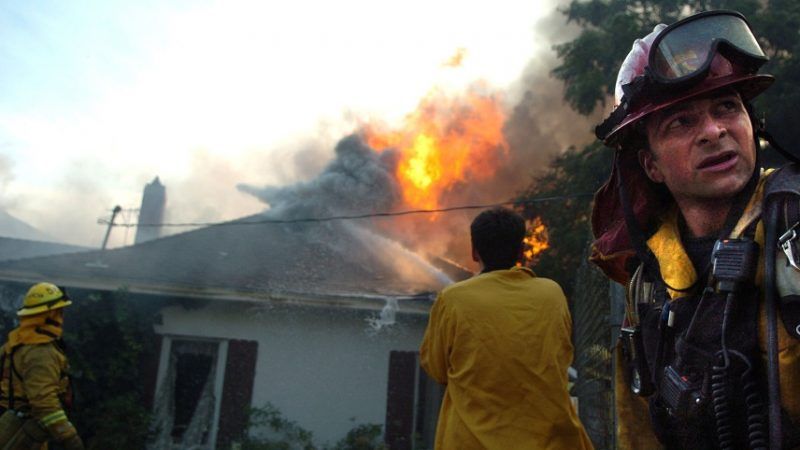Tiny California City's Firefighting Reform Could Be Model for Others
Dealing with the pension crisis.

California's cities are running out of cash, as pension expenses gobble up growing portions of their budgets. They've cut services, raised taxes and come to Sacramento to implore the pension funds and the legislature to help out, but city governments don't have the muscle of the state's public-sector unions, which fight reform.
Here's more of a reality check: These fiscal problems are becoming dire even though the stock market is at record levels, and the state's two massive pension funds enjoyed stellar gains last year. Healthy investment returns keep the pension systems funded, but what happens if there's another downturn?
What to do? The union-controlled California Public Employees' Retirement System assures us that everything will be fine. The stock market, apparently, will take care of things. But the fund is mulling yet another fee hike for hard-pressed cities, so this do-nothing approach isn't a good option.
Pension reformers have tried legislative fixes and initiative campaigns, but have been thwarted because of the "California Rule," which bans the reduction of pension accruals unless public employees are given something of equal value. Reformers are waiting for the California Supreme Court, which this year may decide whether or not to amend that rule. But who knows what the court will do?h
Yet there is a third option, which is being pioneered in the small Riverside County city of Calimesa. Frankly, I'm surprised that it hasn't gotten more attention—or more push back from the state's firefighter and police unions. Such "public safety" spending is eating up 60 percent of the city's general-fund budget. Instead of waiting for a crisis, or hammering taxpayers with tax hikes or service cuts, the city implemented a plan that will cut back the cost of firefighting services.
Mayor Jeff Hewitt led the city to curtail its contract with Cal Fire (the California Department of Forestry and Fire Protection) and create its own fire department. The main reason is to get out from under the union contracts that make it impossible to shave costs and innovate.
Specifically, the new department will be free to determine its own staffing levels on fire trucks. It will also enable the city to switch from a "3 percent at 50" pension deal that lets firefighters retire at age 50 with at least 90 percent of their final three years' pay and move to a cost-effective 401/k-style retirement plan that's common in the private sector.
"In 2012, Riverside County adopted a policy requiring all contract fire service cities to pay for three-person engine companies, despite the already high-quality level of service provided under the previous arrangement," Hewitt explained. "Calimesa was never asked if there was an actual need for increased staffing, and never agreed to upgrade because the associated costs were simply unsustainable." Hewitt feared his city was being pushed toward bankruptcy.
By taking control of fire services, and starting fresh with a new department, the city can get its cost under control and actually expand the level of service—including building a new fire station to serve the Western neighborhoods and purchasing a new $411,000 fire truck.
Everyone appreciates the work that firefighters do, but their salary and benefit levels in California have gotten out of hand. The median total compensation packages are in the $145,000 range for state firefighters and are above $195,000 for firefighters employed by counties and cities. This explains why thousands of people line up whenever there is a firefighting opening in the state.
Creating a city run service isn't a cure all, of course, but the key here is creating a new entity that allows Calimesa to try some creative things and get out from under the bone-crunching costs of these 90-percent-plus pension deals. Other strategies will work elsewhere.
It is understandable that a small city is pioneering big change. In major cities, the firefighting unions have outsized political power. Few city council members or candidates are willing to take on such power, even though doing so is necessary to get costs in line and maintain the service levels and fiscal health of cities.
Seventy-two percent of the nation's firefighters are volunteers. No one is proposing turning well-paid firefighting jobs into volunteer jobs, but why can't local governments adjust the runaway benefits so that the public is best served? Calimesa, for instance, didn't have any trouble hiring new firefighters even at lower pay and benefit levels. On the current trajectory, it's unclear whether the current promised benefits will be fully paid anyway. It's wise to get the costs under control now.
In the private sector, companies are always adjusting their policies and compensation packages to offer the best bang for the buck for customers. The government needs to begin putting its customers first, also. Calimesa's approach is new, but Californians should pay careful attention to a city most of them probably couldn't pinpoint on a map. It might offer a simple, sensible way out of the fiscal morass.
This column first appeared in the Orange County Register.


Show Comments (24)